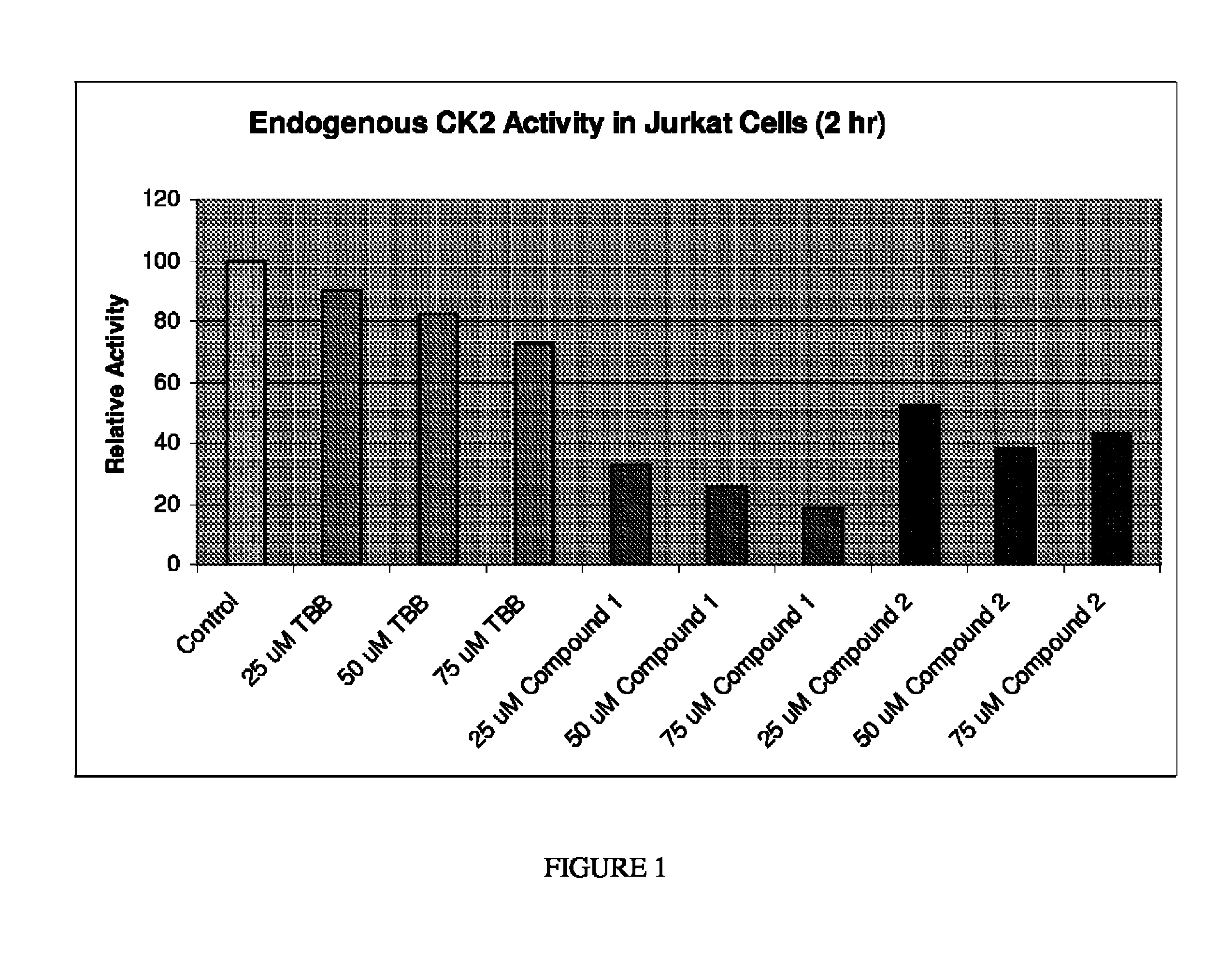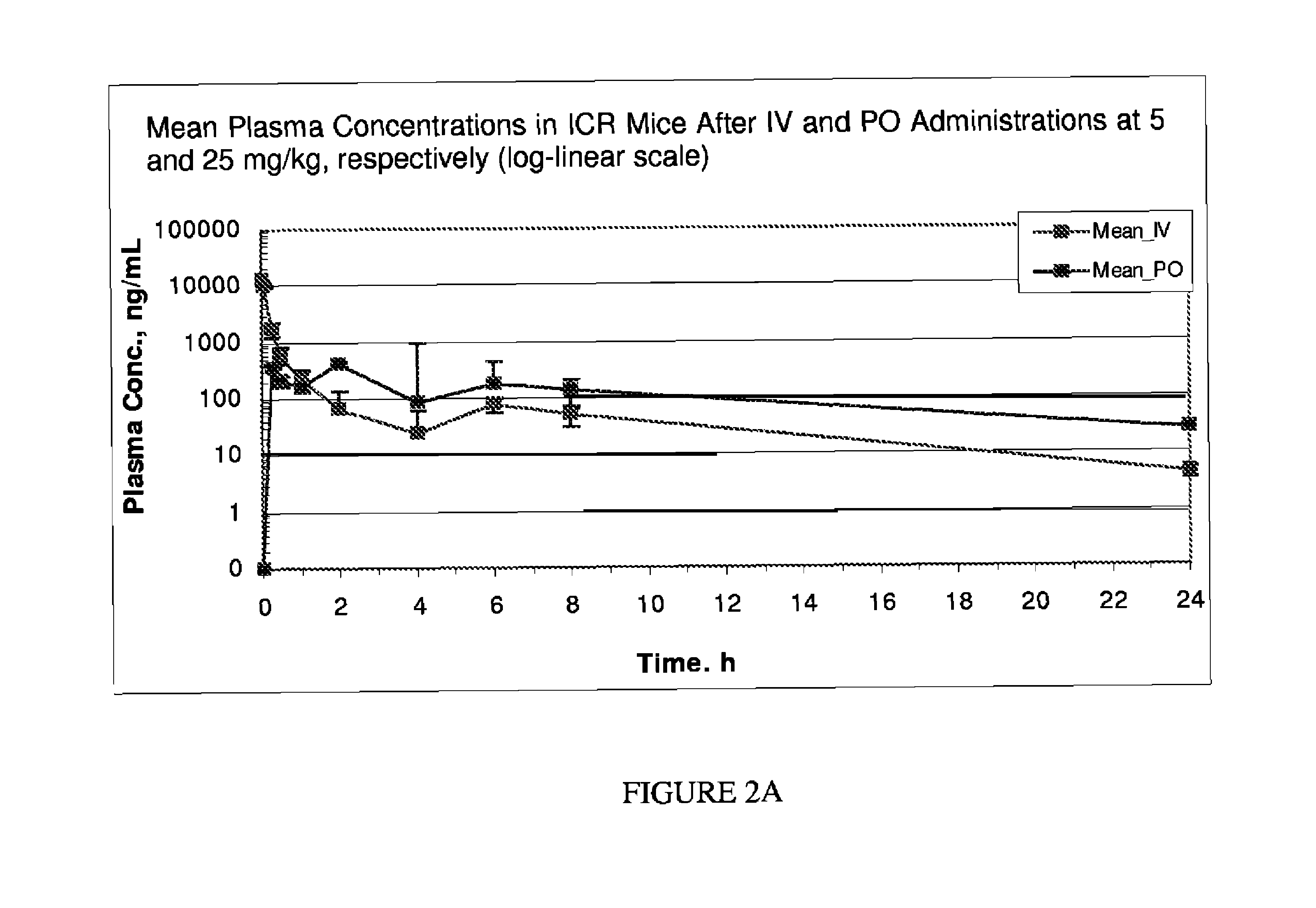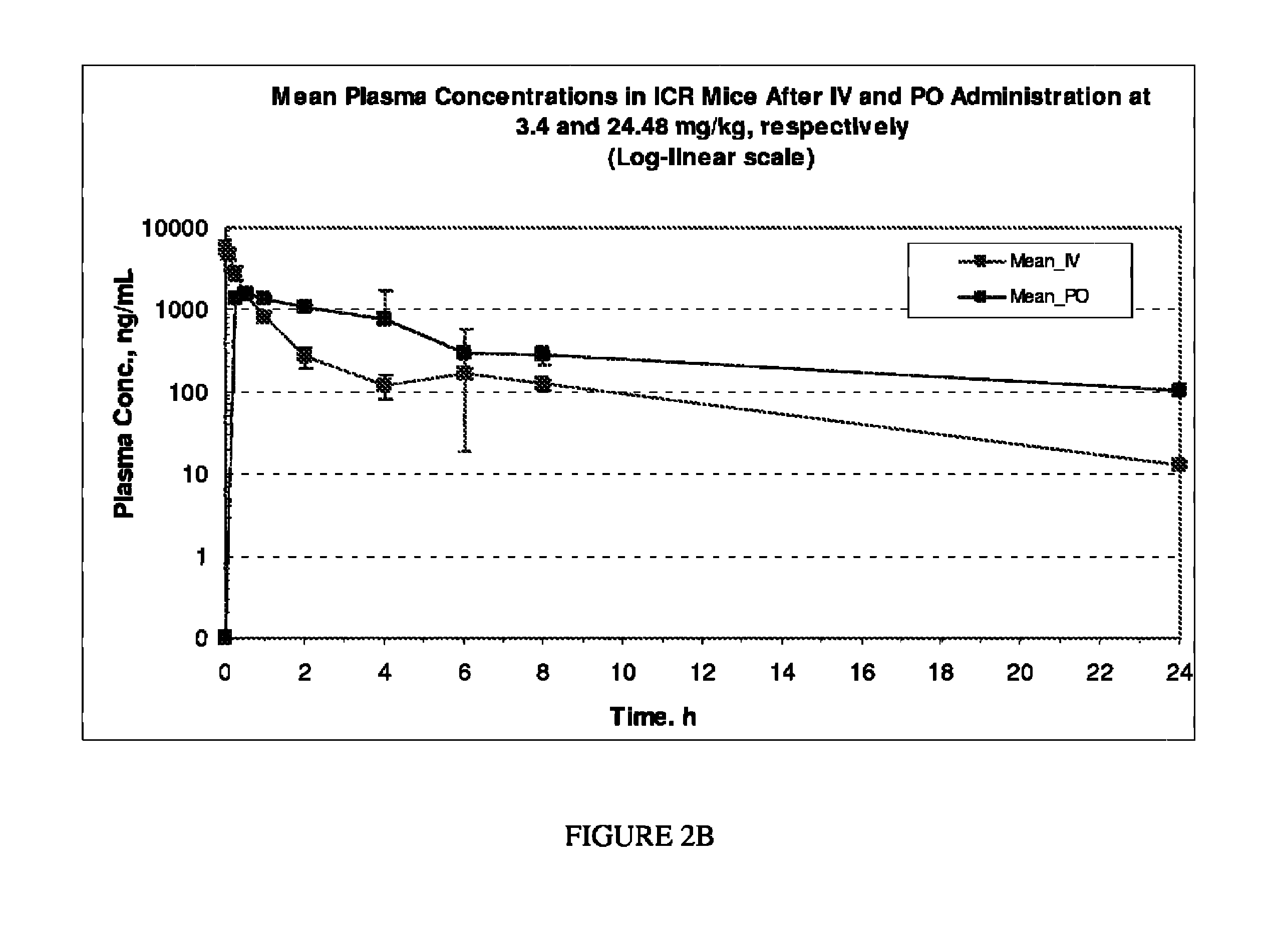Protein kinase modulators
a technology of protein kinase and modulator, which is applied in the direction of biocide, anti-inflammatory agents, drug compositions, etc., can solve the problems of side effects or unpredictable, genetic instability,
- Summary
- Abstract
- Description
- Claims
- Application Information
AI Technical Summary
Benefits of technology
Problems solved by technology
Method used
Image
Examples
example 1
Processes for Synthesizing Compounds of Formulae I, II, III and IV
Process 1
[0340]3-bromo-4-pyridine carboxylic acid (3.0 g, 14.9 mmol) in ethanol (100 mL) was treated with concentrated sulfuric acid (5 mL).
[0341]
[0342]The mixture was brought to reflux at which time everything went into solution. After 12 hours at reflux, LCMS indicated that the reaction was complete. The reaction mixture was cooled to room temperature and concentrated on a rotary evaporator to a third of its original volume. The mixture was then diluted with 250 mL of ethyl acetate and washed twice with saturated aqueous sodium bicarbonate. Concentration on a rotary evaporator yielded 3.25 g of the ethyl ester as a yellowish oil which was sufficiently pure enough for subsequent chemical transformations. LCMS (ESI) 216.2 (M+1)+.
[0343]
[0344]Ethyl 3-bromo-4-pyridine carboxylate 1.15 g, 5.0 mmol), 2-amino-4-methoxycarbonyl-phenylboronic acid (1.04 g, 4.5 mmol), sodium acetate (1.64 g, 20 mmol), 1,1′-bis(diphenylphosphin...
example 2
Processes for Synthesizing Compounds of Formulae V, VI, VII and VIII
Process 1
[0398]
[0399]2-bromo-3-thiophene carboxylic acid (1.0 eq, 12.56 g, 60.66 mmol) was suspended in CH2Cl2 (200 ml). Oxalyl chloride (1.1 eq, 5.9 ml, 67.16 mmol) and 5 drops of DMF were added, inducing formation of gas. The mixture was stirred overnight at room temperature and the volatiles were removed in vacuo. The resulting solid was suspended in dry methanol (150 ml) and the mixture heated to ebullition. Evaporation of the solvents afforded methyl 2-bromo-3-thiophene carboxylate (13.16 g, 98% yield) as a crude brown oil. LCMS (ES): 99% pure, m / z not detected; 1H NMR (CDCl3, 400 MHz) δ 3.88 (s, 3H), 7.23 (d, J=5.6, 1H), 7.56 (d, J=5.6, 1H) ppm.
Process 2
[0400]
[0401]In a microwave vessel, methyl 2-bromo-3-thiophene carboxylate (1.0 eq, 260 mg, 1.18 mmol), 2-amino-4-(methoxycarbonyl)phenylboronic acid hydrochloride (1.1 eq, 300 mg, 1.30 mmol), sodium acetate (3.0 eq, 292 mg, 3.56 mmol) and PdCl2(dppf) (0.05 eq, ...
example 3
Processes for Synthesizing Compounds of Formulae IX, X, XI and XII
Process 1
[0474]
[0475]Methyl 2-amino-4-bromothiazole-4-carboxylate (1.0 eq, 100 mg, 0.42 mmol) was dissolved in anhydrous DMF (0.8 ml). The mixture was heated to 80° C. under nitrogen atmosphere. To the hot mixture, a solution of tert-Butyl nitrite (1.2 eq, 60 ul, 0.50 mmol) in DMF (0.8 ml) was added dropwise. After a few minutes, absence of gas evolution indicated completion of the reaction. The mixture was cooled down and poured onto a prepacked silica gel column. Flash chromatography using hexanes, then AcOEt / hexanes (2:8), provided methyl 5-bromothiazole-4-carboxylate as a yellow solid (49 mg, 53% yield). LCMS (ES): 95% pure, m / z 222 [M]+, 224 [M+2]+.
Process 2
[0476]
[0477]In a microwave vessel, methyl 5-bromothiazole-4-carboxylate (1.0 eq, 97 mg, 0.44 mmol), 2-amino-3-methoxycarbonyl phenyl boronic acid HCl (1.1 eq, 111 mg, 0.48 mmol), sodium acetate (3.0 eq, 107 mg, 1.31 mmol) and PdCl2(dppf) (0.05 eq, 11 mg, 0.022...
PUM
| Property | Measurement | Unit |
|---|---|---|
| polar | aaaaa | aaaaa |
Abstract
Description
Claims
Application Information
 Login to View More
Login to View More - R&D
- Intellectual Property
- Life Sciences
- Materials
- Tech Scout
- Unparalleled Data Quality
- Higher Quality Content
- 60% Fewer Hallucinations
Browse by: Latest US Patents, China's latest patents, Technical Efficacy Thesaurus, Application Domain, Technology Topic, Popular Technical Reports.
© 2025 PatSnap. All rights reserved.Legal|Privacy policy|Modern Slavery Act Transparency Statement|Sitemap|About US| Contact US: help@patsnap.com



